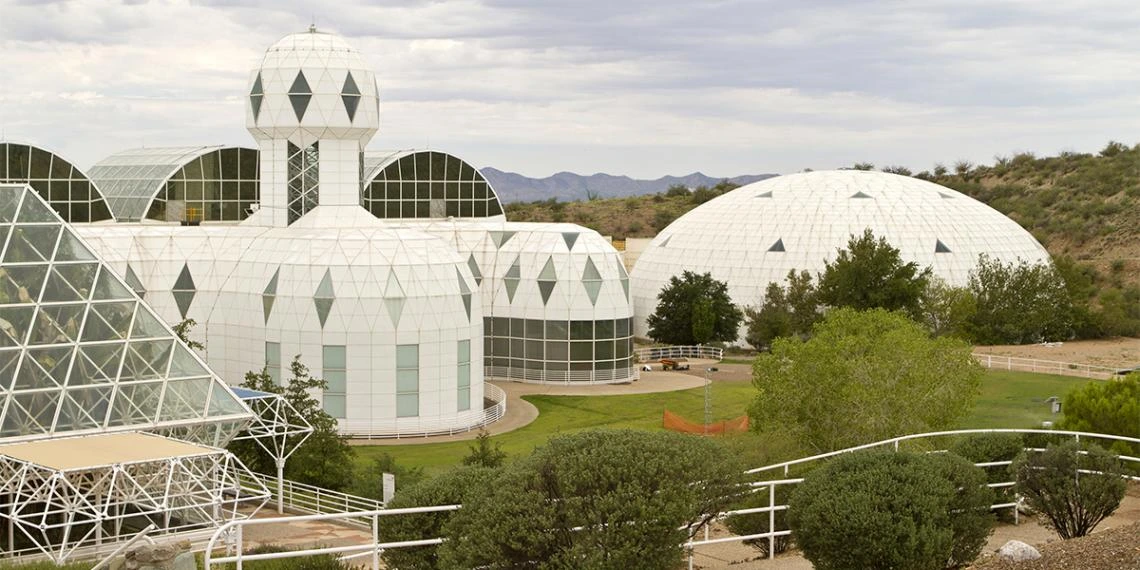UC3: Scaling Up Climate Solutions
In 2018 the University of Arizona joined the University Climate Change Coalition (UC3), comprising 20 leading North American research universities. The goal: helping communities accelerate climate action.

Mission Statement
The University Climate Change Coalition is committed to leveraging their institutional strengths as leading research institutions to foster a robust exchange of best practices and lessons learned in pursuit of accelerating local climate solutions that reduce greenhouse emissions and build community resilience. UA President Robert C. Robbins, a member of the organizing coalition’s steering and advisory committee, QUOTE TK.
UC3 by the Numbers
2018: Year the coalition was formed
2,600: Number of leaders convened from academia and the public and private sectors
2,000,000+: Number of students, faculty and staff represented in UC3
2050: Year by which the coalition has committed to achieving carbon neutrality
12: Number of cross-sector climate forums held in the coalition’s first year
The Mothership
UC3 is a select subgroup of the Second Nature Climate Leadership Network, founded in 1993 to make the principles of sustainability a priority in higher education.
UA Divisions Involved
- Arizona Institute for Resilient Environment and Societies
- Institute for Energy Solutions
- Transportation Research Institute
- Water Resources Research Center
- Biosphere 2
2ºC
A chief goal of the American UC3 members: meeting the target agreed to in 2015’s Paris Agreement, which aims to limit global warming to well below 2 degrees Celsius.
5 Elements of Success
- Institutional Leadership
The head of each university appoints liaisons involved in several sustainability efforts to build a team. - Collaborative Networks
The university teams meet monthly to share their knowledge and provide peer feedback. - Cross-Sector Convenings
Member schools gather various stakeholders in their region to discuss climate risks, challenges and paths to solutions. - Demand-Driven Research
The coalition evaluates forum outcomes and develops research priorities and ideas on how to engage additional stakeholders. - Solutions-Oriented Partnerships
The coalition leverages existing relationships to establish cross-sector partnerships in each community.
Big-Picture Challenges
Water Shortages
Carbon Neutrality
Clean Energy
Climate-Friendly Investments
University Eligibility
- Pledges to reduce its institutional carbon footprint, consistent with the Paris Agreement objectives
- Is designated an R1 research institution by the Carnegie Classification
- President/chancellor’s office commits to the UC3 mission; appoints and supports key liaisons
- Agrees to hold a cross-sector climate change forum, convening within a year of joining the coalition
Cross-Sector Collaborators
- Businesses
- Local and state governments
- Nonprofit organizations
- Community leaders
- Higher education
University Key Roles in Cross-Sector Collaboration
- Knowledge Generator, through research performed and innovations undertaken
- Community Anchor, as a long-standing and credible local institution
- Collaborative Convener, bringing together public officials, business professions and community leaders
Members
- Arizona State University
- Boston University
- California Institute of Technology
- Tecnológico de Monterrey
- La Universidad Nacional Autónoma de México
- Queen’s University
- The Ohio State University
- The State University of New York
- University of Arizona
- The University of British Columbia
- The University of California
- University of Colorado, Boulder
- The University of Connecticut
- University of Maryland, College Park
- The University of New Mexico
- University of South Florida
- University of Toronto
- The University of Utah
- The University of Washington
- Washington University in St. Louis
